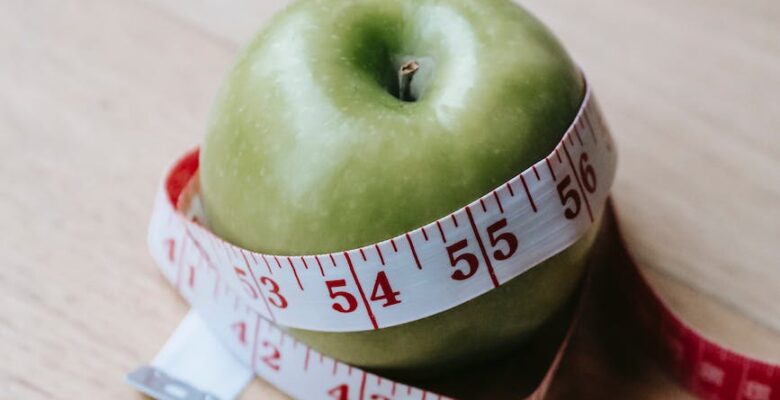Colon cleansing is another term for gut cleansing.
Your gut health is highly important in maintaining your overall health. You will have discomfort if your digestive system is not healthy, which may prevent you from carrying out your daily obligations. Worse, you may develop conditions that necessitate medication and ongoing care. One approach to avoid such problems is to practice gut cleansing.
Consuming poor foods, overeating, stress, or illnesses can all trigger acute digestive difficulties. These are the mild ones; nevertheless, if left untreated, they can progress to chronic disorders. As a result, the first step toward a healthy stomach is gut cleansing.
What exactly is a gut cleanse?
It is frequently related to preparing a person for medical procedures like a colonoscopy. However, it is also utilized for detoxification, cleaning out your intestines.
Although the concept of colon cleansing and gut cleansing is the same, the treatments are not. The term colon cleansing is commonly used to describe the technique performed before a medical operation. A large amount of water, approximately 16 gallons or 60 liters, is pushed into the colon via a tube put into the rectum. An enema is a procedure in which water is allowed to sit in the colon for a short period of time before being evacuated. Gut cleansing, on the other hand, refers to ingesting food and liquids, modifying one’s lifestyle, and taking supplements or herbs to cleanse the gut.

Gut cleansing, on the other hand, is unnecessary because your digestive system and intestine can clean that part of your body on its own. They may potentially remove bacteria and trash from your body. Of course, it wouldn’t hurt to aid your digestive system in cleansing, especially if you’re feeling bloated, having stomach difficulties, or haven’t pooped in days.
In general, there are two methods of colon cleansing.
These are as follows:
Through powdered or liquid supplements – This method involves taking vitamins that aid in colon cleansing orally. The goal is to help your colon discharge its contents. Powdered or liquid supplements are available in a variety of health food stores, supermarkets, and pharmacies. Enemas, laxatives, and herbal teas are examples of these.
Irrigation of the colon (high colonics) – This method is similar to an enema. However, it requires a lot more water. A tiny tube is put into your rectum through which a low-pressure pump or a gravity-based reservoir drains several gallons of water. Then, your abdomen will be massaged to allow you to release the water as you would with a typical bowel movement, forcing you to flush out fluids and waste. The session usually lasts an hour.
Gut cleaning procedures
While colon cleansing is considerably more medical in nature, you can simply cleanse by changing your health behaviors, which is what we term gut cleansing.
Here are some steps you can take to clean your gut.
1. Get lots of water
Drinking plenty of water is crucial since the principle of cleansing is to flush out some fluids or wastes. Water aids digestion and bowel movement, as well as ensuring that you obtain all of the nutrients from your diet. Not only that, but water can aid in the reduction of harmful bacteria that cause digestive problems.
2. Stress management
Stress can create a variety of health difficulties, including digestive problems. In fact, lowering stress can aid in the improvement of your gut microbiome. When you are stressed, your body often swings into either fight or flight mode. It also disables any system that you can’t use to fight or run, including your stomach, causing digestive problems.
3. Limit your intake of sugar, saturated fats, and preservatives.
To keep your gut in good condition, avoid sugar, saturated fats, and preservatives as much as possible. When performing a gut cleanse, however, you must absolutely avoid all three of these chemicals. This is because sugar, saturated fats, and preservatives introduce pollutants into your digestive tract.
4. Get more sleep
Getting more sleep can improve your overall health, including your gut health. One study found that getting quality and enough sleep affects your diverse gut microbiota. When you get enough sleep, your gut bacteria become more diverse and numerous, allowing your digestive system to function more efficiently.

5. Consume gut-cleansing foods.
Eating the correct foods is also essential for gut cleansing. Broccoli, cauliflower, dark leafy greens, ginger, oatmeal, certain teas, in-season fruit, and bone broth are all recommended.
Fermented foods such as kimchi, kefir, sauerkraut, kombucha, and yogurt must also be included in your diet. This is because they promote the increase of healthy bacteria in your stomach. Fiber can also assist since it regulates bowel movements. Brussels sprouts, kale and spinach, organic milk, and raspberries are all high in fiber.
6. Develop a timetable and method.
To successfully cleanse your stomach, you must plan when and how you will do it. Because it can be difficult, your timing should be determined by your lifestyle and schedule. Your bowel movements may fluctuate, which can interrupt your daily routine. As a result, developing a timeframe and approach is essential.
7. Include a vitamin or herbs.
As previously stated, consuming oral supplements or herbs can aid in colon or gut cleansing. You can also look for brands on the market that will work for you. This might assist you in cleaning on a regular basis because you can take them anytime, anywhere.
Signs that you need a gut cleanse
People with poor gut health should, depending on their situation, perform a gut cleanse every now and again. You can tell if you require gut cleansing by looking for the following signs:
1. Your poop is not typical.
When your poop is discolored, it indicates that you have poor gut health. But how do you determine whether your poop is normal? Essentially, it is determined by the frequency of your bowel motions. Normal pooping frequencies should range from three times per day to three times per week. However, it is still unique to every one of us. You can also request fecalysis to ensure that you don’t have any digestive difficulties.
Frequent inflammation, poor vitamin absorption, and cell dysfunction are all signs that you need to cleanse your gut. Furthermore, losing weight can be a huge issue that a gut cleansing might help with.
2. You are irritable, worried, or sad.
Serotonin, a pleasant hormone, affects your mood, sleep, and appetite and is mostly produced in your gut. Your gut aids in the absorption of tryptophan, a vitamin required for the production of serotonin, into your brain. As a result, your diet plays a vital role in both making you feel good and maintaining your mental health. Eat bananas, chicken, turkey, milk, and eggs since they are high in tryptophan.
3. You are anxious.
When you are stressed, your stomach must help you; however, if you have an unhealthy gut owing to a lack of good bacteria, the situation may worsen. Cortisol gets produced from your body when you are under stress. This can eventually lead to despair and other serious health problems. To avoid this, plan and eat a nutritious diet or perform gut cleansing on a regular basis to remove toxins from your body.
4. Bloating, constipation, diarrhea, discomfort, or excessive gas
These are the most prevalent symptoms of gut dysbiosis, which is an imbalance of gut microbiota that causes your gut to be unhealthy. Bloating, constipation, diarrhea, discomfort, or excessive gas may occur when there is an imbalance of gut bacteria or a bad intestinal ecology. You can help your gut by cleansing it.
5. A desire for more sugar
Consuming refined sugar or processed meals actually stimulates your harmful bacteria, allowing them to multiply. This causes you to crave more sugar. Furthermore, large quantities of harmful bacteria feed on your gut wall, which is important since it can contribute to leaky gut syndrome.
6. Food allergies
If you have food intolerances, something is amiss in your gut. Although this is not a life-threatening issue, it must be a big relief to have it removed, right? Bloating, gas, diarrhea, discomfort, nausea, and even skin problems and headaches are some of its symptoms. A gut cleansing may aid in the restoration of gut flora quality and balance.
To Conclude
Although the primary role of your digestive system is to filter those nutrients that your body requires and eliminate those that it does not, you can improve your gut health via gut cleansing. Keeping your gut healthy can enhance your overall health because it is responsible for absorbing water, minerals, and important vitamins that your body requires to function properly. You may help your body eliminate unwanted chemicals or toxins in your digestive system by cleansing your gut, making you feel lighter and better about your general health.
